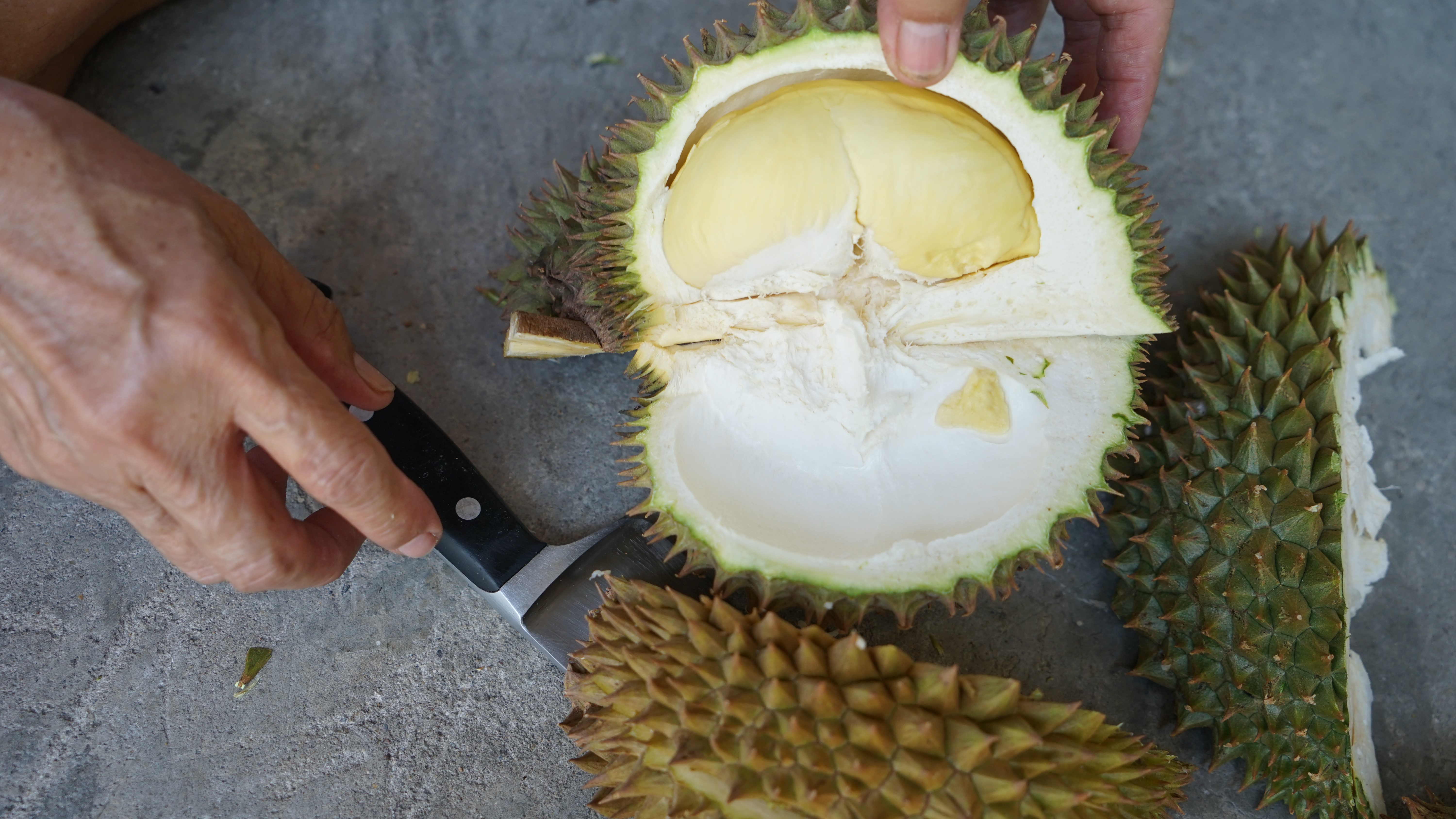Researchers from the University of Sydney have made a very interesting discovery: the fruit universally acknowledged as the world's smelliest fruit may be able to charge up your phone and other electronics at lightning speed.
The researchers published their findings in the Journal of Energy Storage, stating that they developed a method that would allow durian and jackfruit waste to be converted into energy stores.
According to School of Chemical and Biomolecular Engineering academic Associate Professor Vincent Gomes, the tropical fruit waste was turned into super-capacitors. He explained the process: "Using durian and jackfruit purchased from a market, we converted the fruits’ waste portions (biomass) into super-capacitors that can be used to store electricity efficiently."
"Using a non-toxic and non-hazardous green engineering method that used heating in water and freeze drying of the fruits’ biomass, the durian and jackfruit were transformed into stable carbon aerogels—an extremely light and porous synthetic material used for a range of applications," he added. The aerogels were then used to make electrodes. Those electrodes were tested for their energy storage properties, which the team found to be "exceptional."
But what exactly are super-capacitors? Gomes explained this, too.
"Super-capacitors are like energy reservoirs that dole out energy smoothly. They can quickly store large amounts of energy within a small battery-sized device and then supply energy to charge electronic devices, such as mobile phones, tablets and laptops, within a few seconds."
Because of the stinky smell durian emits, many people who consume it are keen on getting rid of the what's leftover, like the fruit's rind. That makes using tropical fruit like durian and jackfruit a sustainable, green and cost-effective way to create energy stores that people all over the world can use to charge common electronics like the best smartphones and the best laptops for college . Using durian as a way to charge phones wouldn't contribute to global warming - and that's a win for everyone. Although it will probably take a while for durian waste to be used in households and business, finding new ways to efficiently use natural material for our everyday needs is, indeed, progress.

